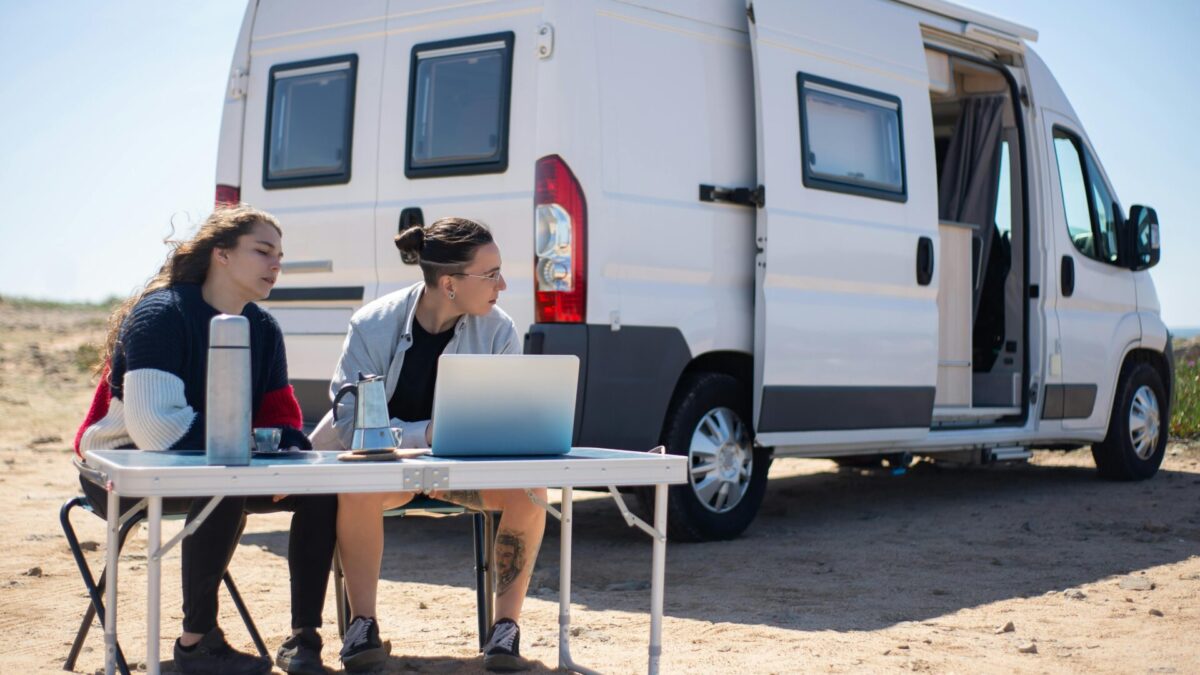In the not-so-distant past, the phrase “working from paradise” was a daydream reserved for freelancers or digital nomads. Today, it’s becoming a reality for millions of people around the world. Remote work has done more than change where we log in—it’s redefining travel itself.
From longer stays to Wi-Fi-rated accommodations and “workation” packages, the travel industry is evolving to meet the needs of a new kind of traveler: the digital worker. Let’s explore how remote work is transforming travel—and what it means for the future of work and wanderlust.
1. Travel Is No Longer Bound by PTO
The biggest shift? People no longer have to wait for vacation days to pack their bags. With laptops and hotspots, work can happen from anywhere—and that’s exactly what’s happening.
Instead of traditional 5-day getaways, people are booking longer stays: a month in Costa Rica, two weeks in Portugal, a season in Bali. These aren’t vacations—they’re relocations with a laptop.
Impact: Hotels, Airbnbs, and travel companies are adapting to this trend by offering discounted long-term rates and work-friendly amenities.
2. The Rise of the “Workation”
The term “workation” blends work and vacation, but it’s more than just a catchy word. It represents a lifestyle shift where travelers blend productivity and play in the same trip.
Hotels and resorts are jumping on the trend, offering:
- High-speed Wi-Fi guarantees
- Quiet co-working lounges
- In-room desks with ergonomic chairs
- Business center perks like printers and meeting pods
Some even offer “Zoom-ready” rooms with ring lights and backdrops—because yes, video call aesthetics matter now.
3. Digital Nomad Visas Are Opening Doors
Countries have caught on. Governments around the world are introducing digital nomad visas, allowing remote workers to live and work legally for extended periods.
Places like:
- Barbados (Welcome Stamp Visa)
- Portugal (D7 and digital nomad visas)
- Estonia, Dubai, and Costa Rica
These programs are turning dreamy destinations into temporary hometowns, blending tourism with economic development.
4. Airports and Airlines Are Rebranding
The travel industry is not just reacting—it’s rebranding.
Airports now offer day passes for business lounges to remote workers passing through. Some airlines are exploring “work-friendly” flight packages, complete with noise-canceling headsets, onboard Wi-Fi credits, and flexible change policies.
Translation: The commute has gone global.
5. The New Travel Checklist: Wi-Fi, Workspace, and Wellness
The way people choose travel accommodations has changed. It’s not just about views and price anymore—it’s about connectivity, comfort, and convenience.
Travelers now check for:
- Verified high-speed internet
- Desk or workspace photos in listings
- Quiet surroundings for focus hours
- Access to wellness services like yoga, healthy meals, or nature escapes
In other words, the modern traveler isn’t looking for escape—they’re looking for balance.
6. Families and Teams Are Getting in on It Too
It’s not just solo workers. Families are taking their kids on extended “edventures,” combining homeschooling with cultural immersion. Remote teams are hosting offsite work retreats in scenic destinations that double as team-building getaways.
The line between business and leisure is officially blurred—and it’s creating richer, more connected experiences.
The Bottom Line
Remote work hasn’t just changed where we work—it’s changed how we travel. It’s no longer about waiting for time off—it’s about integrating life, work, and exploration in new, flexible ways.
For the travel industry, this is more than a trend—it’s a transformation. And for remote workers? It’s an invitation to reimagine the office as anywhere with Wi-Fi and a view.
So go ahead—answer those emails from a beachside hammock. The future of work is wherever you want it to be.
Unlock Full Article
Watch a quick video to get instant access.


Social Media